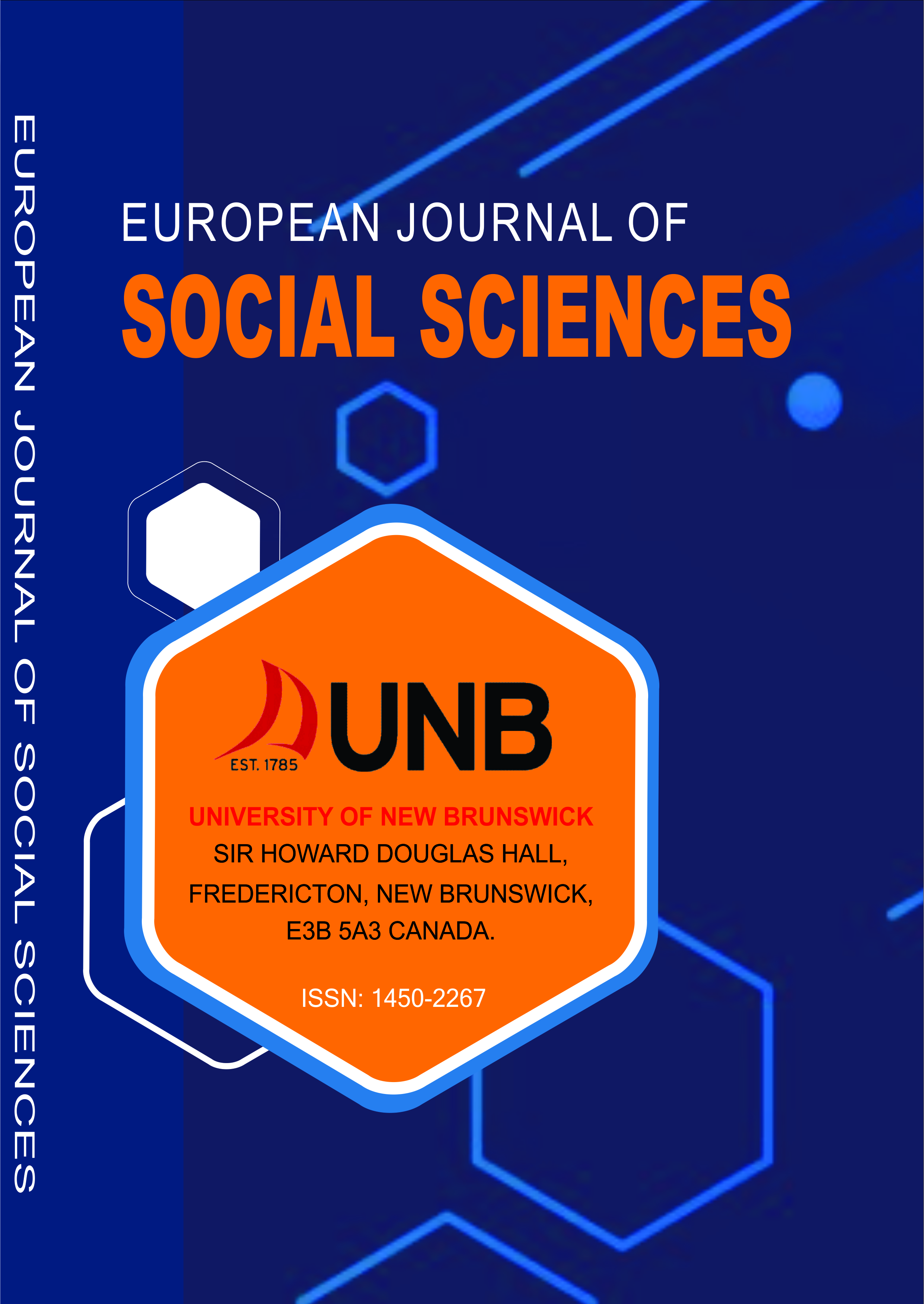EUROPEAN JOURNAL OF SOCIAL SCIENCES (EJSS)
SOCIO-CULTURAL AND ECONOMIC PREDICTORS OF CHILD TRAFFICKING IN ABIA STATE, RIVERS STATE, NIGERIA
E-ISSN: 4899-5667
P-ISSN: 1450-2267
DOI: https://iigdpublishers.com/article/13
The issue of child trafficking has continued to attract the attention of policymakers, international multilateral agencies as well as academics over the years. This notwithstanding, the problem still persists with different dimensions bothering on social, cultural, economic and spiritual concerns. It is against this backdrop that this study examined the sociocultural and economic predictors of child trafficking in Abia State, Nigeria. The main objective was to provide empirical evidence concerning the interplay between variables such as; family size, poverty, unemployment and child trafficking in the study area. To achieve the objectives of the study, information was collected from a sample of 380 questionnaire respondents and 12 in-depth interview participants over a period of time. Hence, relying on the theoretical assumptions of the culture of poverty perspective, Marxist Political Economy and Robert K. Merton’s Strain and Anomie theory as well as relevant analytical methods such as percentages, frequencies, descriptive models and the Chi-Square Statistical Test (χ2), the study revealed that large family size especially having many children, low income of households (poverty) and widespread unemployment are all significantly related to child trafficking in the study area. Interestingly, child trafficking is perceived to have the positive effect of increasing household income justifying the fact that poverty and unemployment are major enablers of the problem. Based on this findings, the study suggests among others that poverty alleviation programmes targeting households as well as youth employment interventions through skills and empowerment schemes should be embarked upon by the government. The findings and recommendations of this study have strong implications for child trafficking policy formulation in Abia State and Nigeria in general.
Samuel Aretha Rekiya PhD & Edum Samson
Abia State Ministry of Housing (2012). Housing and household survey of Abia State.www.abiasmh/housing/household/pdf.com
Adesina, S. (2014). Juvenile workers: Challenges to National development. Ibadan: University of Ibadan Press.
AFROL Gender Profile-Nigeria (2002). African Charter on Human and Peoples Rights (Ratification and Enforcement) Act 1990. AFROL Gender Profile-Nigeria. (2002). Available: http://www.afrol.com/Categories/Women/profiles/nigeriawomen.htm
Amin, S., Quayes, M. S., & Rives, J. M. (2004). Poverty and other determinants of child labour in Bangladesh. Southern Economic Journal, 70 (4), 876-892.
Angus, J. (2016). Parenting and child abuse. Kano: Usman Danfodio University Press.
